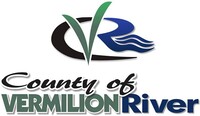Collection Events for Unwanted Pesticides and Old Livestock/Equine Medications

Do you have unwanted pesticides or livestock/equine medications? Cleanfarms is running free collection events in Marwayne on October 6 and Vermilion on October 7 from 9am-4pm. This only happens every 3 years so these events are a great opportunity to safely dispose of old chemicals and meds. See the poster for more details and a link for more information, including what will be accepted.
What's In
- Unwanted (or “obsolete”) agricultural pesticides including seed treatment (identified with a Pest Control Product number on the label; including used miticide strips).
- Commercial pesticides for golf courses and industrial and commercial pest control products (identified with a Pest Control Product number on the label).
- Livestock/equine medications that are used on-farm in the rearing of livestock, poultry or horses in an agricultural context (identified with a DIN number, serial number, notification number or Pest Control Product number on the label).
What's Out
- Treated seed/seed that is treated
- Fertilizer, diluted solution, large quantities of unopened product
- Full and unopened jugs of adjuvant or surfactant
- Needles or sharps, medicated feed, aerosol containers, premises disinfectants and sanitizers, veterinary clinic waste and medications, ear tags, and aerosols
- Domestic pesticides, fertilizers and animal health products
- Any other household hazardous waste.
If you are unsure whether your product fits the scope of this collection please call 877-622-4460 or Cleanfarms at info@cleanfarms.ca
